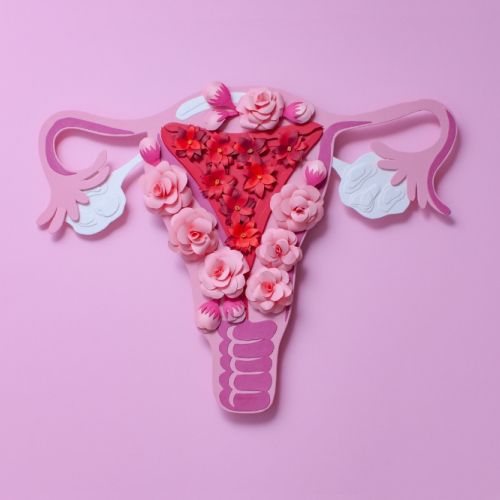What Are the Chances of Getting Pregnant After Tubal Reversal?

If you had a tubal ligation that was done to prevent pregnancy, your fallopian tubes were cut, tied, or burned to stop an egg from being fertilized. It’s not uncommon for women to feel differently after some time has passed, and if you have changed your mind about wanting to prevent pregnancy, it may be possible to reverse this procedure and unblock the egg’s path.
When women consider having a reversal procedure, it’s common for them to ask, “What are the chances of getting pregnant after tubal reversal?” The Center for Reproductive Health provides compassionate support to couples who are exploring their options.
Factors To Consider
The chances of pregnancy after a tubal reversal can range from around 50% to 80%. There are several factors to consider that help determine whether you’re a good candidate. One of the most important factors is your age. Your chance of getting pregnant decreases as you get older. The best candidates are typically women under the age of 40 who had their tubes tied right after having a baby.
The type of tubal ligation you previously had done and how much tube is left are other important factors to consider. Your doctor needs enough healthy tube(s) to be able to reconnect them. If your tubes were tied using rings or clips, this type of procedure is easier to reverse than if electrocautery was used to burn your fallopian tubes.
Your Overall Health
To find out if you’re a good candidate, your doctor will do a thorough review of your medical history including your history of pregnancies and pelvic surgeries. Blood tests and imaging tests may be ordered. Conditions that contribute to infertility such as endometriosis, pelvic inflammatory disease, and uterine fibroids can affect whether this procedure is likely to be successful. Other health conditions such as heart problems or autoimmune diseases can also affect your ability to have a tubal reversal followed by a successful pregnancy.
Your Partner
Your partner’s overall health and the health of his sperm can also affect your chances of getting pregnant after tubal reversal. A sperm count and semen analysis may be done before having a tubal reversal to determine the quality and quantity of your partner’s sperm. If there are issues with your partner’s sperm or any other reasons that tubal reversal isn’t right for you, you may want to consider in vitro fertilization (IVF). Undergoing IVF may be a better choice than tubal reversal for women over the age of 40.
Getting Pregnant After Tubal Reversal
Your doctor lets you know how long after a tubal reversal you should wait before trying to get pregnant. Women who are able to conceive after tubal reversal usually do so within the first year or two after the procedure.
A tubal reversal isn’t a guarantee of attaining a successful pregnancy, and there are other options to consider. Highly trained and experienced specialists are available at The Center for Reproductive Health who want to help you reach your goal of having a baby. Schedule a consultation today.
Eliran Mor, MD
Reproductive Endocrinologist located in Encino, Valencia & West Hollywood, CA
FAQ
What does a reproductive endocrinologist and infertility specialist do?
Reproductive endocrinology and Infertility is a sub-specialty of Obstetrics and Gynecology. In addition to managing medical and surgical treatment of disorders of the female reproductive tract, reproductive endocrinologist and infertility (REI) specialists undergo additional years of training to provide fertility treatments using assisted reproductive technology (ART) such as in vitro fertilization.
Reproductive endocrinologists receive board certification by the American Board of Obstetrics and Gynecology in both Obstetrics and Gynecology and Reproductive Endocrinology and Infertility.
When should I see an REI specialist?
In general, patients should consider consulting with an REI specialist after one year of trying unsuccessfully to achieve pregnancy. The chance of conceiving every month is around 20%, therefore after a full year of trying approximately 15% of couples will still not have achieved a pregnancy.
However, if a woman is over the age of 35 it would be reasonable to see a fertility specialist earlier, typically after 6 months of trying.
Other candidates to seek earlier treatment are women who have irregular menses, endometriosis, fibroids, polycystic ovary syndrome (PCOS), women who have had 2 or more miscarriages, or problems with the fallopian tubes (prior ectopic pregnancy).
What are the reasons we are having trouble conceiving?
Approximately 1/3 of the time cause for infertility is a female factor, 1/3 of the time a male factor, and the remaining 1/3 a couples’ factor.
At CCRH, we emphasize the importance of establishing a correct diagnosis. Both partners undergo a comprehensive evaluation including a medical history and physical exam.
Furthremore, the woman’s ovarian reserve is assessed with a pelvic ultrasound and a hormonal profile. A hysterosalpingogram (HSG) will confirm fallopian tube patency and the uterine cavity is free of intracavitary lesions. A semen analysis is also obtained to evaluate for concentration, motility, and morphology of the sperm.
Additional work up is then individualized to direct the best possible treatment option for each couple.
What is IVF? What is the process like?
In vitro fertilization (IVF) is the process that involves fertilization of an egg outside of a woman’s body.
The process starts with fertility drugs prescribed to help stimulate egg development. In your natural cycle, your body is only able to grow one dominant egg, but with stimulation medication we can recruit multiple eggs to continue to grow. After about 8-10 days of stimulation, the eggs are surgically retrieved and then fertilized with sperm in a specialized laboratory. Fertilized eggs are then cultured under a strictly controlled environment within specialized incubators in the IVF laboratory for 3-5 days while they develop as embryos. Finally, embryos (or an embryo) are transferred into the uterine cavity for implantation.
Should I have IVF?
Before deciding if IVF is the right choice, it’s important to sit down with an REI specialist to discuss available treatment options. For some people, other methods such as fertility drugs, intrauterine insemination (IUI) may be the best first choice treatment. At CCRH, we believe each individual couple is unique and not everyone needs IVF.
Is the IVF procedure painful?
While not painful, the fertility medications may some side effects including headaches, hot flashes, mood swings, and bloating. The injection sites may also bruise.
Will IVF guarantee a baby?
Unfortunately, no. Many people think once they start IVF it’s a matter of time that they will be pregnant and have a baby. But according to national statistics per the Society of Assisted Reproduction (SART), on average 40% of assisted reproduction cycles achieve live births in women under age 35. The chances of success then continue to decrease with advancing age.
At CCRH, we employ only evidence-based interventions to ensure patient safety and optimal outcome. While we cannot guarantee a baby, we guarantee that you will receive the best, most advanced, personalized care to help you maximize your chance of a baby.
What is the success rate for IVF?
The average IVF success rate (success measured in live birth rate) using one’s own eggs begins to drop around age 35 and then rapidly after age 40. This is due to the decline in egg quantity and egg quality as a woman ages.
Our clinic’s success rate consistently beats the national average year after year.
Do insurance plans cover infertility treatment? How much does IVF cost?
Individual insurance plans often do not have any coverage for infertility treatments. If you have a group plan, you can call members services to see if they have coverage for infertility (including consultation/workup and IVF).
After your consultation with our REI specialist, one of our dedicated account managers with sit with you to go over the cost of treatment.




